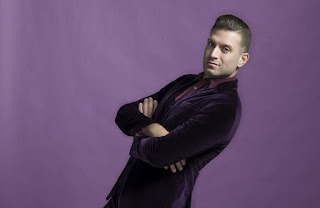
In 2012, Omar Sharif Jr., the actor, media personality and campaigner used his public profile to come out as both gay and half Jewish, through a poignant letter in Advocate magazine. On its own, coming out in his native Egypt takes an immense amount of courage. Homosexuality isn’t specifically outlawed, but there are morality laws in place, carrying a sentence of up to 17 years in prison and, in recent years, the LGBT+ community has been the target of a fierce state-sponsored crackdown. Fearing persecution if he stayed, “Egypt’s favourite son” (as he was often called) was forced to leave Cairo and seek sanctuary in America.
It would have been easy to retreat into the safe, relative obscurity his new home offered, but instead he recognised his platform and used it. Last year, he made more history by becoming the first openly gay man to discuss his sexuality on an Arabic news programme. Not only was it his first appearance on Arabic TV, it was probably the first time many of those watching would have heard directly from a gay man.

Sharif’s story may not be unique in principle but in terms of impact his narrative bears huge significance. Although he was born in Canada, he grew up in Cairo – isolated, closeted, struggling to accept his sexuality – and lacking a gay role model he could identify with, either in his personal life or in the media. He had no voice and no place in his country. “In Egypt the LGBT+ community isn’t visible,” he says. “I didn’t have friends or family members, I didn’t have anyone to look to in the media. I didn’t see a reflection of myself on TV.”
In the end, he looked closer to home to draw inspiration. “In terms of inspiration it was certainly my grandmother and my grandfather,” says Sharif. His grandfather and namesake, lauded for his roles in Lawrence of Arabia and Doctor Zhivago, is widely acclaimed for doing the same for religious tolerance. “They taught me that the status quo is meant to be challenged and I think that’s been my inspiration,” he says. READ FULL INTERVIEW
Thank-you for reading Stonewall Gazette
Be sure to never miss one of our posts.
You can follow Stonewall Gazette
on Facebook and Twitter or receive it by email!



